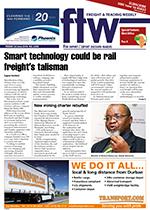Shipping along the West African coastline remains extremely uncertain and challenges like language barriers, due to many of the countries being Francophone, and availability of information aren’t making matters easier for analysts responsible for updating trade data.
Senior researcher with the Trade Law Centre (Tralac) in Stellenbosch, Willemien Viljoen, told FTW that although “there’s a lot of information out there, it’s often not publicly available or the information is not current, correct, or complete”.
Viljoen published an incisive report back in 2016 detailing burning issues that beset trade along areas such as the Gulf of Guinea. Among other things she wrote that West and Central Africa “have the highest comparative international transport costs and excessive transit times”. In addition she noted that in the Economic Community of West African States (Ecowas), “transport and logistics costs are the highest in the world”.
Commenting on whether the trade data she had used had since changed, Viljoen painted a picture of extreme difficulty in getting up-to-date data on Ecowas countries. “The lack of access to information not only covers regional and national policies, programmes and trade rules, but also trade and tariff data and the status of implementation of regional agreements, programmes, and national policies,” she said.
Thankfully attempts are under way to address the situation through online platforms launched in Ghana, Nigeria, Ivory Coast, and portals such as Borderless Alliance and Trade Obstacles Alert. Unfortunately “these platforms are all in their infancy so information is still lacking, incomplete, and not up to date,” Viljoen said.
Adding further weight to the problem is the failure of many Ecowas members to update their trade data, imperilling important trade agreements such as the Pan-Arab Free Trade Agreement (Pafta) and the Greater Arab Free Trade Area (Gafta). Underscoring the extent to which out-dated data affects trade in the Ecowas region, Viljoen said that old trade and tariff information, “if reported at all, makes trade analysis increasingly difficult, especially in light of the African Continental Free Trade Area negotiations.”
Speaking about the reluctance of some countries to co-operate, Viljoen said Liberia and Gabon didn’t bother at all with sending trade data to the UN, whereas Mali hadn’t updated its data since 2015. Also, countries like Chad, Ghana, Gambia and Ivory Coast are a year behind in updating their data. In some instances the data is so inefficient, mirror data is being used to create an approximated impression of what the trade situation might be like.
“It makes the analysis of intra-REC (regional economic communities) impossible,” Viljoen said.
INSERT
There’s a lot of information out there, but it’s often not publicly available or the information is not current, correct, or complete. – Willemien Viljoen
CAPTION
Tralac researcher, Willemien Viljoen. Photo: Domenic Gorin

